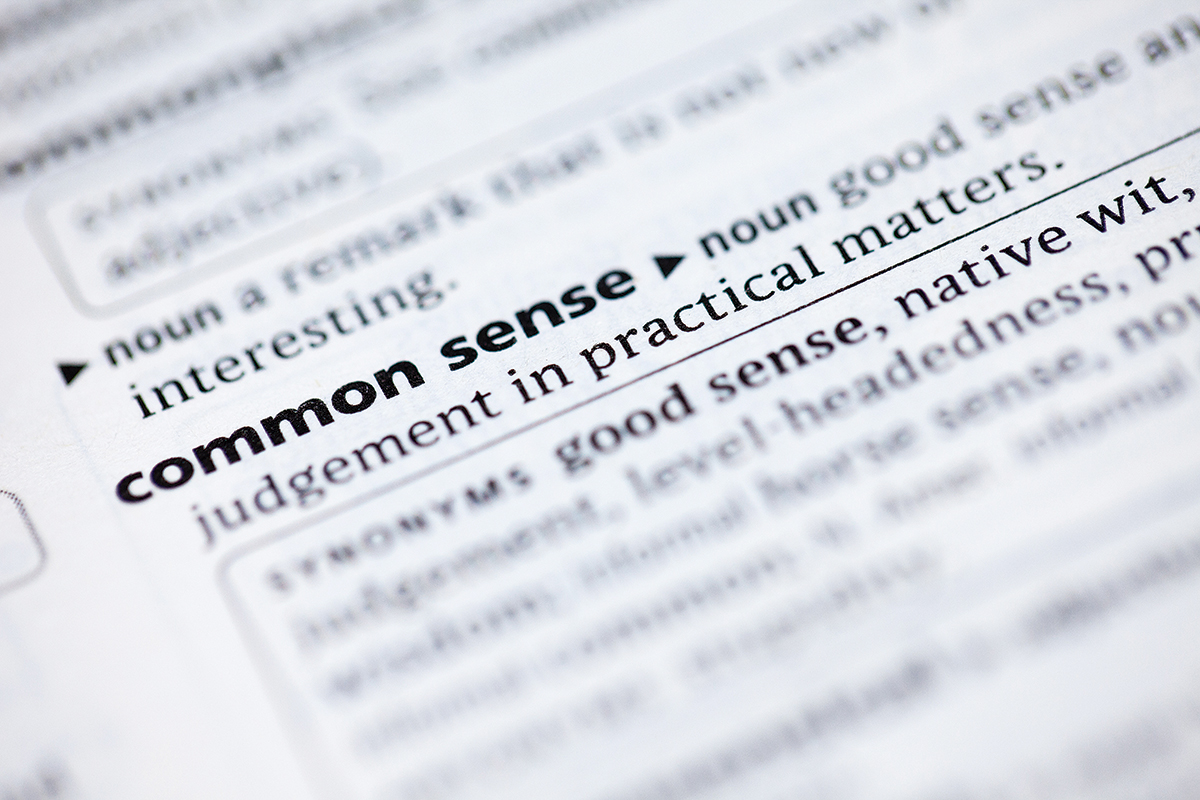
Donald Trump recently identified the Republican Party as the “party of common sense.” In many ways, common sense is lacking in public policy. For example, progressive activists do not acknowledge the negative relationship between regulation and economic prosperity. However, “common sense” is not what an economy needs. What an economy needs is free markets, and that is not the product of mere “common sense,” but economic sense.
Protecting domestic industry may be “common sense” to Trump, his supporters, and even progressives, but it is not an economically efficient way of increasing a country’s prosperity. Countless pro-free trade articles and lectures have been produced in defense of trade, but the point is that the arguments do not rely on so-called common sense, but on the indirect economic way of thinking.
These arguments rely on notions of opportunity cost, comparative advantage, and gains from trade to name a few. Consumption of other goods is sacrificed when you have to pay a higher price because of a tariff, production becomes less efficient, and mutually beneficial exchanges are prevented. This is not immediately clear from common sense.
If this is not convincing you that common sense and economics are at odds, let’s examine a more controversial example - seatbelt laws.
Almost all states have some regulation governing the use of seatbelts by car occupants. At first glance, this seems like a no-brainer. Common sense tells us that this is a good thing. After all, seat belts are effective, right? Yes, effective at protecting the driver and the car’s occupants, but how do seatbelts affect the safety of those not in the car? This is where common sense and economics diverge.
Safety measures, such as seatbelts, may protect one group (drivers), but will heighten reckless driving and endanger the lives of other groups (pedestrians). This is an application of something called the Peltzman Effect. Essentially, the cost of reckless driving decreases; therefore, there will be more of it. This demonstrates that in order to evaluate the consequences of a seatbelt law, we must account for the lives lost by adversely-affected groups as well as those who are benefited. This conclusion would be hard to arrive at from common sense alone.
Another good example is occupational licensing. Common sense may mandate that the government intervene to guarantee a basic level of competency among various occupations such as doctors or accountants; however, economists have a different perspective.
Seat belts are effective, right? Yes, effective at protecting the driver and the car’s occupants, but how do seatbelts affect the safety of those not in the car? This is where common sense and economics diverge.
Licensing creates a barrier to entry. Effectively, this gives incumbent workers a monopolistic advantage, allowing them to increase prices, reduce quality, and restrict output without suffering the consequences they would in a free market in licensing, namely, competition from new entrants. This is the point that Milton Friedman makes in his 1962 book Capitalism and Freedom. In his chapter on occupational licensure, he makes the case that government licensing is motivated by special interests and has negative consequences for consumers. Friedman states, “The most obvious social cost is that any one of these measures, whether it be registration, certification, or licensure, almost inevitably becomes a tool in the hands of a special producer group to obtain a monopoly position at the expense of the rest of the public”. This effect is hardly considered by the practitioners of common sense.
This is just a sampling of the ways that common sense and economics differ. Of course, common sense and economics can converge through education. Teaching the economic way of thinking helps to bring the two together, and it may even shift the preferences of the electorate toward the free market. Until then, we should be highly skeptical when a political party or movement claims to be “the party of common sense.”




-1758107444.jpg)
